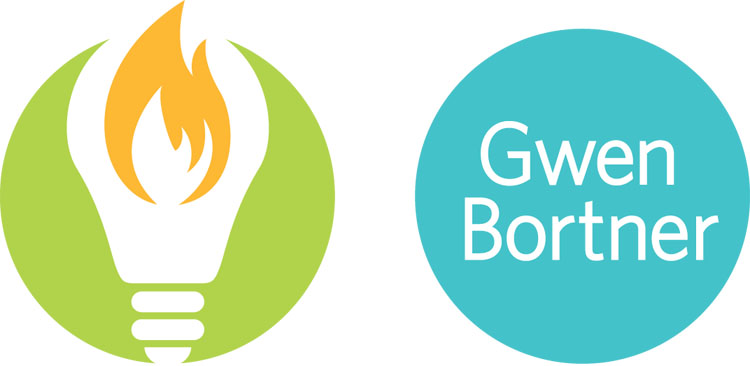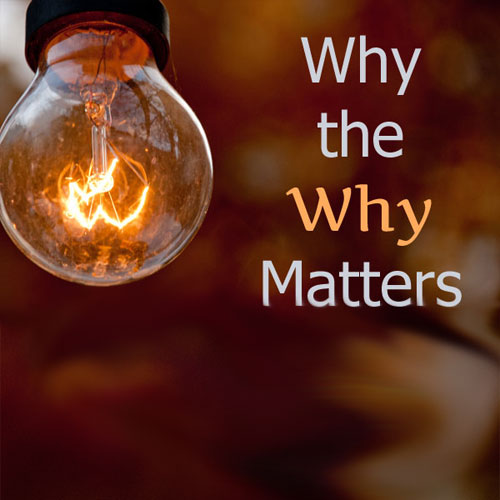Sometimes we know things intuitively but we can’t understand them until someone else helps us make sense of them.
For years now, from time to time, things in my world will go exceedingly well (both personally and/or professionally) and I am never quite sure what I did “right”. That was until I was asked to watch this TED Talk in preparation for a board meeting.
The Summary
This, by no means, is a substitute for the content in the above mentioned TED Talk by Simon Sinek, but it will help get you on the same page. We are good about talking about what we do and often about how we do it, but explaining why we do it often eludes us. However, the reason why we do any significant task, activity or job is probably more important than the how or the what. Why is tied to our emotions and is often a much stronger driver of activity and behavior. From a business perspective, when our “why” aligns with, supports or is the same as other people’s “why”, doing business together is practically automatic.
The Power of Why
I tend to be an enthusiastic personality. When I get excited about something, there is a good chance that I will have enough energy and momentum to make it happen. For years I assumed it was my enthusiasm that attracted the people I needed to make whatever grand idea I had come into being. But looking back I am no longer quite so sure. After listening to Simon Sinek’s TED Talk I realize that there is a large probability that my “why” supported, merge with or was the same as the “why” of the people with whom I was working.
Categories of “Why”
As I have considered this idea further, I have come to realize that our “whys” fall into categories. One is not better than the other, but they each serve different purposes. By understanding the difference, when and how they can apply, and their unique power, it is easier to explain both our successes and failures.
The Personal Why
This is the “why” that often results in new habits or changes in behaviors. In Michael Hyatt’s program Best Year Ever, one of the important elements is to assign a “why” to your task or goal. For example, losing weight is rarely enough incentive in and of itself. However, add reason such as, “If you don’t you will like become diabetic within the next year” and suddenly your odds of success go up. The “why” is personal, it is directly about you and your life.
Personal “whys” can get us motivated to do all sorts of things (both good and bad). But understanding the why behind the action can be very powerful both in motivation and in self-control.
The Inspirational Why
These “whys” are most often associated with social action, religious or justice issues. The example that Simon Sinek used was Dr Martin Luther King. Dr King’s “why” was important not only to him but thousands of other people of the time. People showed up in Washington, D.C. not specifically because of Dr King, but because they shared the same “why”.
Non-profits function on a shared goal that stems from a “foundational why”. It inspires us to take action (giving of time and/or money) as a response to answer “our why”.
The Solution Why
This “why” is associated with businesses or shared ventures. This is a belief or a tenet that is shared not only by the seller of the product or service, but also the buyer. A shared “why” is often the reason behind purchasing something because it “just seems right”. I experienced this earlier this year when my knitting business partner and I launched a new product at our industry trade show. Because our fundamental business goal is to make more dedicated knitters while supporting all aspects of the industry, getting buy-in was amazingly easy.
The challenge from a business perspective is that we often start with the “what” and the “how” and never really take time to understand the “why”.
Start with “Why” First
Since my introduction to this concept I have found many insights by focusing on “why”. For my personal goals, when the “why” wasn’t really a strong motivator, nothing moved forward, but when it was sincere, progress was always made. In my non-profit work, if I don’t believe the purpose, I have no energy. However, when the purpose is compelling, I am willing and able to invest significant time and effort. As I re-launch GwenBortner.com, when I focus on my products and services I become paralyzed. When I focus on my main goal, helping small business owners find the answers they need to be successful, the ideas and energy seem boundless.
If you are struggling, start by honestly analyzing your “why”. There may be more answers in that simple question than you imagine!
What is the question you are currently struggling with?


